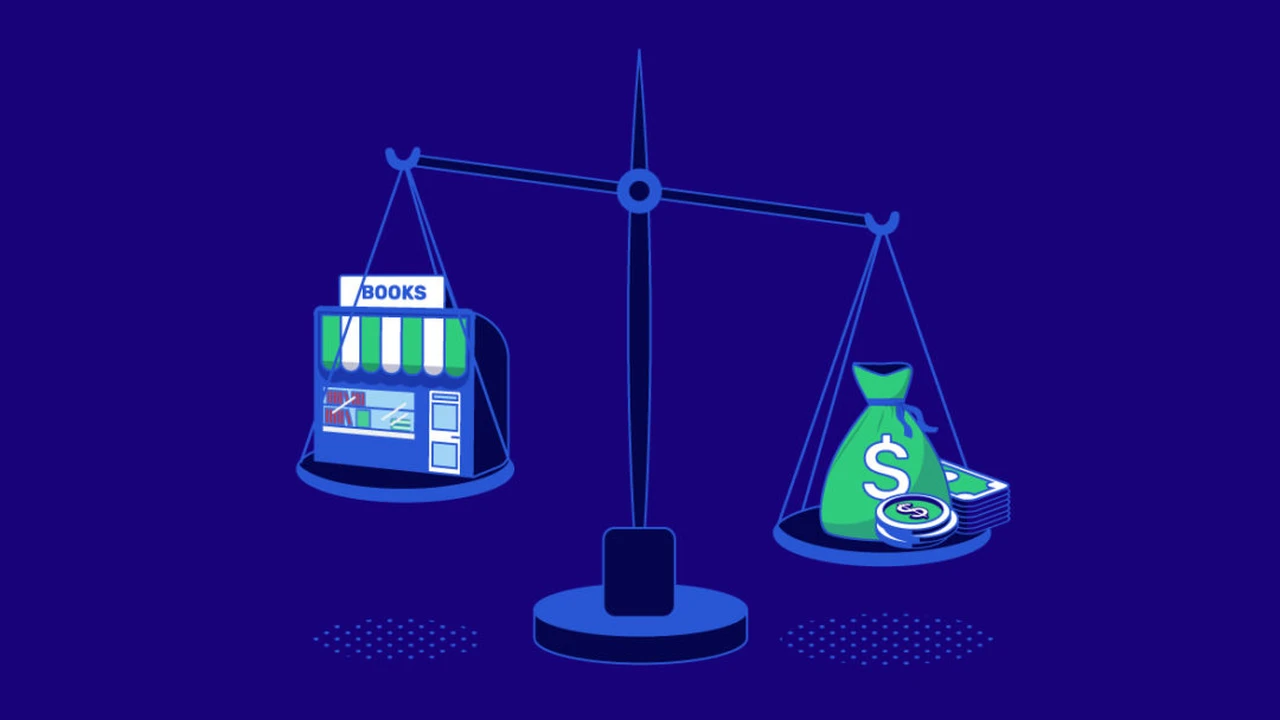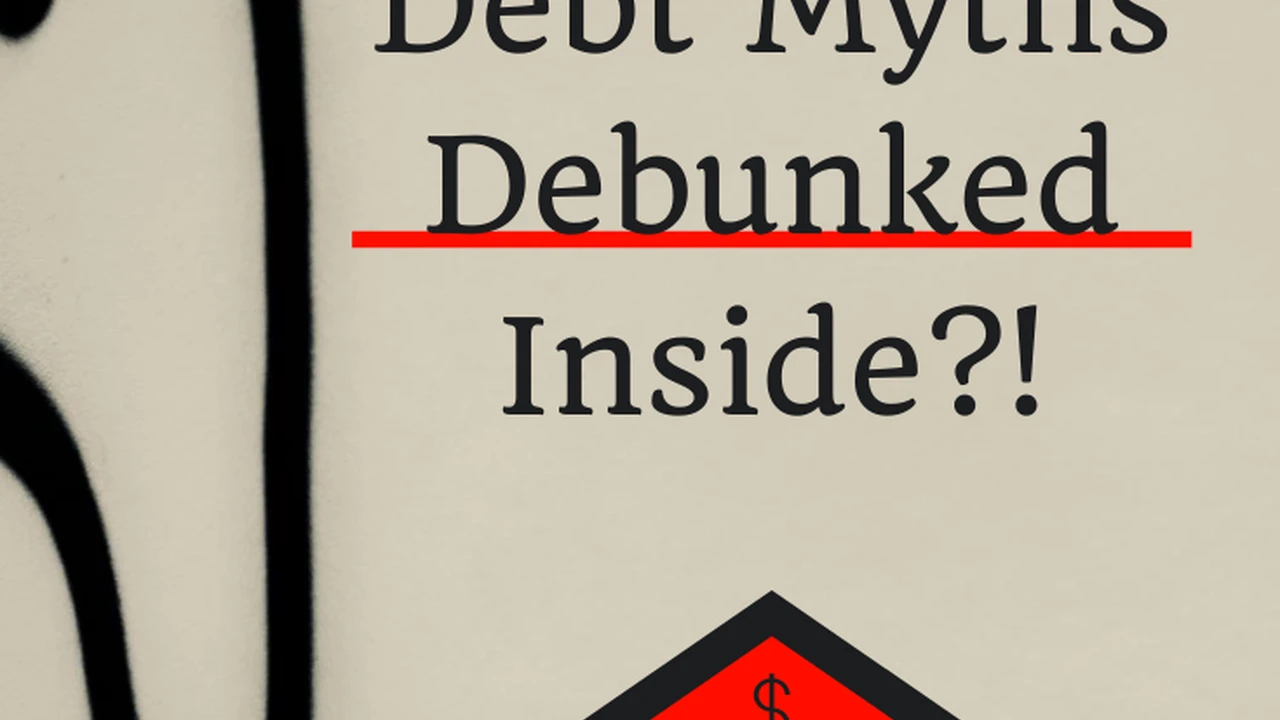5 Signs Your Small Business Needs Tax Debt Relief Help
Identify the 5 key signs that indicate your small business requires professional tax debt relief assistance.

Identify the 5 key signs that indicate your small business requires professional tax debt relief assistance.
5 Signs Your Small Business Needs Tax Debt Relief Help
Running a small business is a dream for many, offering independence, innovation, and the chance to build something truly your own. However, it also comes with a unique set of challenges, not least of which is navigating the complex world of taxes. For many small business owners, tax debt can creep up unexpectedly, often due to unforeseen circumstances, cash flow issues, or simply a misunderstanding of tax obligations. Ignoring these signs can lead to severe penalties, liens, levies, and even the potential closure of your business. Recognizing when your small business needs professional tax debt relief help is crucial for its survival and future prosperity. This comprehensive guide will walk you through five key indicators that it's time to seek expert assistance, along with practical advice and product recommendations to help you get back on track.
Sign 1: Receiving Official IRS or State Tax Notices and Letters
One of the most undeniable signs that your small business is in tax trouble is the receipt of official notices and letters from the IRS or your state tax authority. These aren't just friendly reminders; they are formal communications that demand your attention. Ignoring them is perhaps the worst thing you can do, as it can escalate the situation rapidly.
Understanding IRS Notices and Their Urgency for Small Business Tax Debt
The IRS sends various types of notices, each with its own level of urgency and implications. Common notices for small businesses include:
- CP14 Notice: This is a balance due notice, indicating that you owe taxes. It's often the first step in the collection process.
- CP501, CP503, CP504 Notices: These are increasingly urgent reminders that you have an unpaid tax balance. A CP504 notice, specifically, warns of the IRS's intent to levy your assets or wages.
- Letter 1058 or LT11: These are Final Notice of Intent to Levy and Notice of Your Right to a Hearing. This is a serious warning that the IRS plans to seize your business assets, bank accounts, or accounts receivable.
- Notice of Federal Tax Lien Filing: This indicates that the IRS has filed a public claim against your business property, which can severely impact your credit and ability to secure financing.
- Notices related to payroll tax deficiencies: These are particularly critical as payroll taxes are considered 'trust fund' taxes, meaning the business owner is personally liable.
If you're receiving any of these, especially the more aggressive ones, it's a clear signal that the IRS is actively pursuing your business for unpaid taxes. At this stage, attempting to handle it yourself without professional guidance can be risky. A tax debt relief professional can help you understand the notice, assess your options, and respond appropriately to prevent further escalation.
Sign 2: Significant Cash Flow Problems Due to Tax Obligations
Cash flow is the lifeblood of any small business. When tax obligations start to severely impact your ability to pay other essential business expenses, such as rent, utilities, employee salaries, or suppliers, you're likely facing a significant tax debt problem. This isn't just about having less money; it's about a systemic issue where tax liabilities are disproportionately draining your resources.
Analyzing Cash Flow Impact and Business Tax Debt Management
Here's how to recognize this sign:
- Delaying payments to vendors or employees: If you're consistently late on payments because you're trying to save money for taxes, or if you've already used funds designated for taxes to cover other operational costs, you're in trouble.
- Inability to meet payroll tax deadlines: Payroll taxes (Social Security, Medicare, and income tax withholding) are non-negotiable. Failing to deposit these on time can lead to severe penalties and the Trust Fund Recovery Penalty, which can hold business owners personally liable.
- Constantly dipping into personal funds: While common for new businesses, if you're regularly using personal savings or credit to cover business tax liabilities, it's unsustainable and indicates a deeper problem.
- Declining profitability directly linked to tax payments: If your profit margins are shrinking primarily because of the burden of tax payments, it's time to re-evaluate your tax strategy and seek help.
A tax professional can help you analyze your cash flow, identify the root causes of your tax debt, and negotiate payment plans with the IRS or state authorities that are more aligned with your business's financial reality. They can also help you implement better financial planning strategies to prevent future cash flow crises related to taxes.
Sign 3: Accumulating Penalties and Interest on Unpaid Taxes
The IRS and state tax agencies don't just charge you for the unpaid tax amount; they also add penalties and interest. These can quickly snowball, turning a manageable debt into an overwhelming one. If you notice that a significant portion of your tax bill consists of penalties and interest, it's a strong indicator that your tax debt is spiraling out of control.
Strategies for Reducing Penalties and Interest on Small Business Tax Debt
Penalties can be assessed for various reasons, including:
- Failure to file on time
- Failure to pay on time
- Failure to make estimated tax payments
- Underpayment of estimated taxes
- Failure to deposit payroll taxes
Interest is charged on underpayments and unpaid balances, and it compounds daily. The longer the debt remains unpaid, the more interest accrues. A tax debt relief professional can:
- Request penalty abatement: In certain circumstances, the IRS may abate penalties if you can show reasonable cause (e.g., natural disaster, serious illness, incorrect advice from a tax professional).
- Negotiate payment plans: By establishing an Installment Agreement or Offer in Compromise, you can stop the accumulation of some penalties and interest, or at least manage the payment more effectively.
- Advise on future compliance: They can help you set up systems to ensure timely filing and payment, preventing future penalties.
Don't let penalties and interest eat away at your business's future. Professional intervention can often significantly reduce this burden.
Sign 4: Feeling Overwhelmed and Unsure of Your Tax Debt Options
Tax law is incredibly complex, and dealing with tax debt can be emotionally and mentally draining. If you find yourself constantly stressed about your business's tax situation, losing sleep, or feeling completely lost about what steps to take next, it's a clear sign you need professional help. This emotional and mental burden can also impact your ability to run your business effectively.
Navigating Complex Tax Debt Solutions for Small Business Owners
Many small business owners try to tackle tax debt on their own, only to find themselves deeper in the mire. The IRS offers various relief programs, but understanding which one applies to your specific situation and how to successfully navigate the application process requires expertise. These options include:
- Installment Agreement: Allows you to make monthly payments over a period of up to 72 months.
- Offer in Compromise (OIC): Allows certain taxpayers to resolve their tax liability with the IRS for a lower amount than what they originally owe. This is typically an option when you can't pay your full tax debt or doing so would cause financial hardship.
- Currently Not Collectible (CNC) Status: If you can prove that paying your tax debt would prevent you from meeting basic living expenses, the IRS may temporarily delay collection until your financial situation improves.
- Penalty Abatement: As mentioned, this can reduce or remove penalties.
A qualified tax debt relief professional, such as a tax attorney, Enrolled Agent (EA), or CPA specializing in tax resolution, can:
- Assess your financial situation: They'll conduct a thorough review of your business and personal finances to determine the best course of action.
- Explain your options clearly: They can demystify the complex jargon and help you understand the pros and cons of each relief program.
- Handle communication with tax authorities: They can act as your representative, dealing directly with the IRS or state agencies, which can significantly reduce your stress.
- Prepare necessary documentation: The application processes for relief programs are document-intensive. Professionals ensure everything is submitted correctly and completely.
Don't let the complexity paralyze you. Seeking expert advice can provide clarity, peace of mind, and a clear path forward.
Sign 5: Considering Drastic Measures Like Closing Your Business
If the thought of closing your small business due to insurmountable tax debt has crossed your mind, it's a critical alarm bell. While sometimes necessary, closing a business should be a last resort, especially when viable tax debt relief options might exist. Many business owners reach this point because they don't realize the extent of the help available.
Exploring Alternatives to Business Closure for Tax Debt Resolution
Before you make any drastic decisions, consult with a tax debt relief professional. They can often find solutions you weren't aware of, potentially saving your business. They can help you:
- Explore all IRS and state relief programs: As discussed, there are multiple avenues for relief.
- Negotiate with creditors: Beyond tax debt, they can help you manage other business debts that might be contributing to your financial distress.
- Restructure your business: Sometimes, a change in business structure or operations can improve financial health and tax compliance.
- Understand the implications of closure: If closure is truly the only option, they can guide you through the process to minimize personal liability and ensure proper tax filings during cessation.
The goal of a good tax debt relief professional is to help you keep your business afloat and thriving. Don't give up until you've explored all possible avenues with an expert.
Recommended Products and Services for Small Business Tax Debt Relief
When you realize your small business needs tax debt relief, the next step is to find the right tools and professionals. Here are some recommendations, including specific products and services, to help you navigate this challenging period.
Tax Resolution Firms and Their Offerings for Small Business Tax Debt
These firms specialize in negotiating with the IRS and state tax authorities on behalf of businesses and individuals. They typically employ a team of tax attorneys, Enrolled Agents (EAs), and CPAs.
Optima Tax Relief
- Overview: One of the largest and most well-known tax relief companies. They offer a wide range of services, including Offer in Compromise, Installment Agreements, penalty abatement, and audit defense.
- Use Case: Ideal for small businesses with significant and complex tax debt, especially those facing aggressive IRS collection actions. They handle both federal and state tax issues.
- Comparison: Known for their comprehensive approach and large team of professionals. They often have a structured process from initial consultation to resolution.
- Pricing: Typically charges an upfront investigation fee (often a few hundred dollars) to assess your case, followed by a flat fee for their services, which can range from $2,000 to $10,000+ depending on the complexity.
Community Tax
- Overview: Offers a full suite of tax resolution services, including tax preparation, tax debt relief, and accounting services. They emphasize personalized service.
- Use Case: Good for small businesses that need not only tax debt resolution but also ongoing tax planning and accounting support to prevent future issues.
- Comparison: Often praised for their customer service and ability to handle a variety of tax situations. They also offer tax preparation, which can be a convenient add-on.
- Pricing: Similar to Optima, with an initial consultation/investigation fee and then a flat fee for services, generally in the range of $1,500 to $8,000+.
Jackson Hewitt Tax Resolution Services
- Overview: While primarily known for tax preparation, Jackson Hewitt also offers tax resolution services through their network of tax professionals.
- Use Case: Suitable for small businesses that prefer a more localized, in-person approach, especially if they already use Jackson Hewitt for tax preparation.
- Comparison: May offer a more accessible entry point for smaller tax debt issues compared to larger, more specialized firms. Their local presence can be a benefit.
- Pricing: Varies by location and complexity, but generally competitive, often starting from a few hundred dollars for simpler cases and going up for more complex resolutions.
Accounting Software with Tax Planning Features for Small Business Tax Debt Prevention
While not directly for debt relief, robust accounting software can prevent future tax debt by improving financial organization and tax planning.
QuickBooks Online
- Overview: The industry standard for small business accounting. Offers comprehensive features for invoicing, expense tracking, payroll, and financial reporting.
- Use Case: Essential for any small business to maintain accurate financial records, which is crucial for tax compliance and preparing for any tax debt resolution process. Its reporting features can help identify cash flow issues early.
- Comparison: More feature-rich than many competitors, with extensive integrations. Can be more complex for absolute beginners but offers unparalleled scalability.
- Pricing: Starts from around $30/month for the Simple Start plan, up to $200/month for Advanced, with discounts often available. Payroll is an add-on service.
Xero
- Overview: A cloud-based accounting software popular for its user-friendly interface and strong bank reconciliation features.
- Use Case: Great for small businesses that need intuitive accounting to keep track of income and expenses, making tax preparation smoother and reducing the likelihood of errors that lead to debt.
- Comparison: Often cited as more user-friendly than QuickBooks for some users, with excellent multi-currency support, which is useful for businesses with international transactions.
- Pricing: Plans range from $15/month (Early) to $78/month (Established), with varying features and transaction limits.
FreshBooks
- Overview: Primarily focused on invoicing and time tracking, making it ideal for service-based businesses and freelancers.
- Use Case: Helps service-oriented small businesses accurately track income and expenses, ensuring proper reporting for tax purposes and preventing underpayment.
- Comparison: Simpler than QuickBooks or Xero, with a strong emphasis on invoicing and client management. Less robust for inventory or complex payroll.
- Pricing: Starts from $19/month (Lite) to $60/month (Premium), with custom pricing for larger businesses.
Payroll Services for Small Business Tax Compliance
Payroll tax issues are a common cause of small business tax debt. Using a dedicated payroll service can prevent these problems.
Gusto
- Overview: A highly-rated payroll service that automates payroll, tax filings, and benefits administration.
- Use Case: Essential for any small business with employees to ensure accurate and timely payroll tax deposits and filings, significantly reducing the risk of payroll tax debt and penalties.
- Comparison: Known for its user-friendly interface, excellent customer support, and comprehensive features, including new hire reporting and W-2/1099 preparation.
- Pricing: Starts from $40/month base fee + $6/person per month for the Simple plan, with higher tiers offering more features.
ADP Small Business Payroll
- Overview: A long-standing leader in payroll services, offering scalable solutions for businesses of all sizes.
- Use Case: Suitable for small businesses looking for a robust, reliable payroll solution with extensive compliance features and support.
- Comparison: Offers a wider range of HR and compliance services than many smaller competitors, making it a good choice for businesses anticipating growth.
- Pricing: Custom quotes are typically provided based on the number of employees and desired features, but generally competitive for small business plans.
Tax Preparation Software for Accurate Filing and Small Business Tax Debt Avoidance
Accurate tax preparation is the first line of defense against tax debt.
TurboTax Business
- Overview: A popular tax preparation software that guides small business owners through the process of filing various business tax forms (e.g., Schedule C, 1120, 1120S, 1065).
- Use Case: Ideal for small business owners who want to prepare their own taxes but need guidance to ensure accuracy and maximize deductions, thereby preventing underpayment and potential debt.
- Comparison: Known for its user-friendly interview-style interface and comprehensive coverage of business tax situations.
- Pricing: Varies by version, typically ranging from $120 to $190 for federal business returns, with state returns as an add-on.
H&R Block Business & Self-Employed
- Overview: Another strong contender in tax preparation software, offering similar features to TurboTax for business filers.
- Use Case: Good for small business owners seeking a guided tax preparation experience with robust support options, including access to tax professionals if needed.
- Comparison: Often seen as a strong alternative to TurboTax, with competitive pricing and a good reputation for accuracy.
- Pricing: Similar to TurboTax, with federal business returns typically costing around $110 to $180, plus state fees.
Recognizing the signs that your small business needs tax debt relief is the first and most critical step toward resolving the issue. Don't wait until the IRS is knocking on your door or your business is on the brink of collapse. Proactive engagement with qualified professionals and the right tools can save your business, alleviate stress, and set you on a path to financial stability and growth. Remember, you don't have to face tax debt alone; help is available, and taking action now can make all the difference.
:max_bytes(150000):strip_icc()/277019-baked-pork-chops-with-cream-of-mushroom-soup-DDMFS-beauty-4x3-BG-7505-5762b731cf30447d9cbbbbbf387beafa.jpg)





